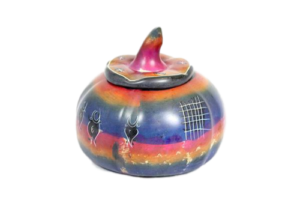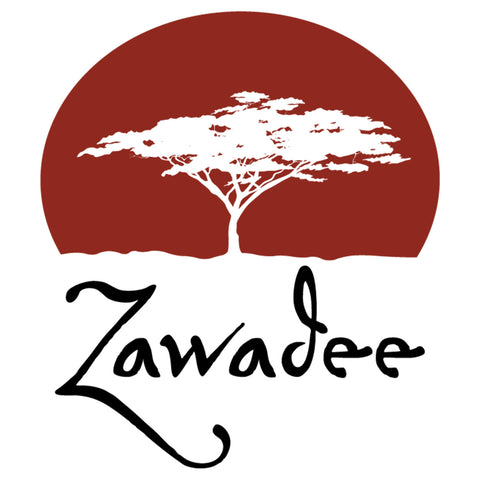Africa - The Birthplace of Coffee
Many of us won’t even consider starting the day without our daily jolt of coffee. For centuries, people all over the world and from all walks of life have enjoyed sipping this tasty, caffeinated beverage!
But coffee is more than a simple drink. Its social aspect throughout history cannot be denied. Sipping a cup of coffee is a ritualistic experience for some. Coffee houses throughout the ages have provided a place for people to share art, poetry, music, politics and simple camaraderie.
Coffee as an Industry
There’s no denying it—coffee is big business. Check out these impressive stats:
- It is the world’s second most-traded commodity (petroleum is the first)
- The global coffee market earns nearly $60 billion annually
- Around 7 million tons of green coffee beans are produced each year worldwide
- World coffee exports amounted to 8.85 million bags in the month of December alone, according to the International Coffee Organization
Coffee, which has been sipped by kings and peasants alike, got its humble start in the mountains of Ethiopia.
In the Beginning
The origins of global coffee growing can be traced to the Horn of Africa. This is also where the beverage was first enjoyed. Coffee trees originated in the Ethiopian province of Kaffa. From there, coffee made its way to the Middle East. By the 15th century, coffee was being cultivated in Yemen. And in 1616 the Dutch brought live coffee plants back to the Netherlands to grow in greenhouses. It quickly spread to the rest of Europe, and as they say, the rest is history.
Coffee Plants
Today, coffee is grown in 53 countries around the world—all of them near the equator, including several on the African continent. Coffee plants need lots of sunshine and moderate rainfall to thrive. There are essentially two different varieties of coffee—Arabica and Robusta. Gourmet coffee comes from Arabica beans, while Robusta beans are typically used in instant coffees. Arabica beans come from the plant, Coffea Arabica, which was originally found in the mountains of the southwestern highlands of Ethiopia. Coffea Arabica accounts for 75-80% of the world’s coffee production.
Keep your coffee beans on your countertop in style!
Arabica beans generally grow at altitudes between 450-1800 meters (1500-6000 feet). They can’t handle any frost. The plant has lush, shiny green leaves, with an open branching system. Cultivated plants are usually trimmed, but a wild coffee plant can grow 9-12 meters (29-39 ft) tall.
A mature coffee plant will produce around 2,000 coffee cherries a year, which will yield enough beans for half a kilo (one pound) of roasted coffee. The plant will continue to produce coffee beans for about 15 years.
African Coffee Countries
Some of the best coffee in the world comes from the African continent. Talk to any coffee connoisseur around the world, and they’ll likely sing the praises of many African coffees. Ethiopia is still the powerhouse of Africa when it comes to coffee. Ethiopian coffee comprises 3% of the global coffee market, and a staggering 60% of Ethiopia’s foreign income comes from coffee. It’s estimated that 15 million people in Ethiopia depend on coffee production for some part of their livelihood.
Ethiopian Sidamo and Harrar are two coffee beans that are in world demand. Sidamo is grown in the Sidamo Province of Ethiopia. It’s heavy-bodied with a spicy, almost chocolaty taste. Harrar is one of the oldest coffee beans still produced. Workers still sort and process the beans by hand. Harrar offers a rich, fruity, wine flavor.
Pick A Pocket's Media Team was in Addis Ababa recently to gather some new material - all part of an exciting new face and new direction for The Koshe Project (an admirable undertaking helping young girls in Ethiopia).
While there, they shot this video about the Ethiopian Coffee Ceremony, which is an indispensable tradition in daily Ethiopian life, and a cornerstone of hospitality and friendship.
"Incense is lit and coffee beans are carefully washed, roasted and ground by hand, then brewed in a clay Ethiopian coffee pot over hot coals. Once ready, the dark, flavorful buna is enjoyed in small cups and the ceremony repeats twice, providing plenty of time for those gathered to converse and share stories."
Kenya is also well-respected for its coffee beans. Kenyan coffee is known for its bright acidity, its sweetness and a dry wine after taste. Kenyan coffee is mainly produced by small cooperatives. Auctions are held in Nairobi each Tuesday during the harvest season. Competition can be fierce. Uganda is also a major coffee growing country. But unlike Ethiopia and Kenya, Uganda focuses its efforts on producing the hardy robusta bean. Compared to Arabica beans, robusta beans are cheaper and easier to farm. Coffee makes up 95% of Uganda’s exports. 300,000 farmers grow coffee in Uganda, so it’s essential to the country’s well-being.
Fair Trade
Coffee is vital to many developing countries’ economies. For years coffee growers received a ridiculously small amount for their efforts—just pennies per pound of beans. But steps are being taken to rectify this injustice. Fair trade regulations, which are designed to give those working in developing countries a living wage and ensure sustainable farming practices, are growing in popularity and effectiveness. Coffee primarily comes from small farmers from less-affluent areas. So an increase in fair trade agreements (even huge multinational companies, such as Starbucks and Nestle are now on board) will surely increase the standard of living for those who work so hard to make our daily cup of Joe possible. Our good friends at Barocco - Café Artigianale - offer two amazing blends we highly recommend. Biondo - a 100% Arabica coffee, blending both African and South American beans for subtle floral hints and a smooth sweet finish. We especially enjoy Scurro - a 100% Arabica dark roast - also a blend of African and South American beans. Scurro has a strong body and aroma with an earthy taste and a hint of smokiness. Barocco's coffee blends reflect their origins as well as their roast profile.






